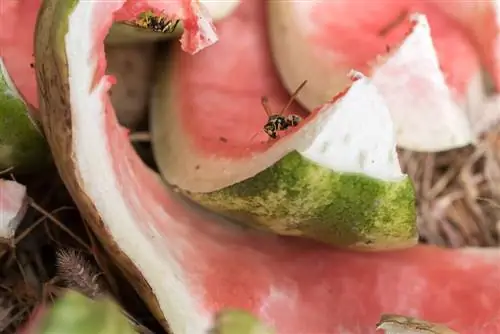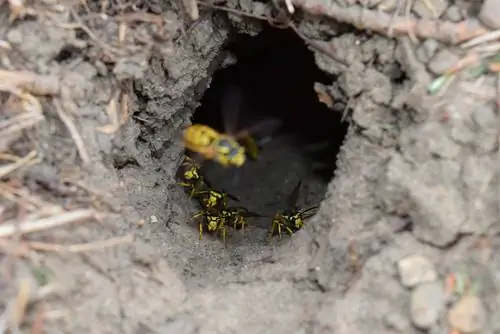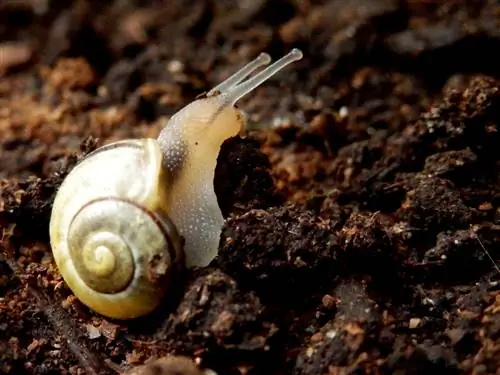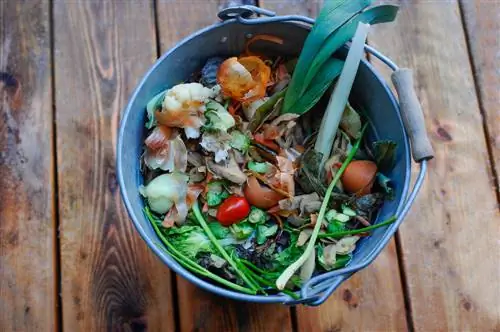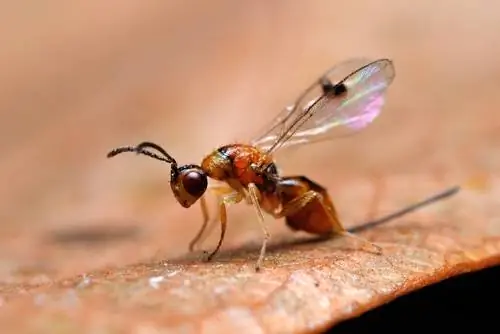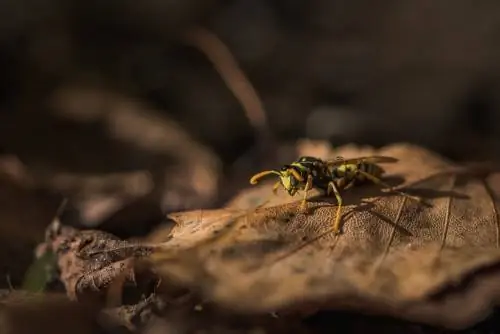- Author admin leonars@hobbygardeners.com.
- Public 2023-12-16 16:46.
- Last modified 2025-01-23 11:21.
Not all wasps are aggressive and stinging. The insects colonize the compost in order to look for food. If they start building nests in your compost, you should contact a beekeeper.
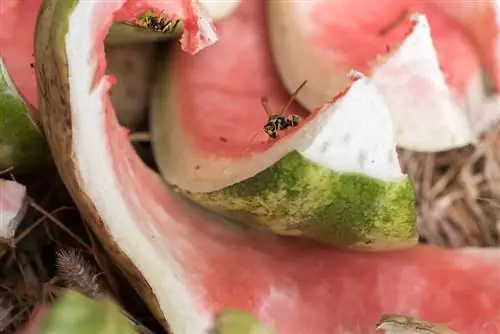
How do you deal with wasps in compost?
If wasps nest in compost, first observe what is happening and contact a beekeeper if necessary. Cover the compost to keep wasps away. Remove empty nests in the fall and plant fragrant or deterrent plants such as tomatoes, basil or lavender.
Lifestyle of insects
Wasps feed on insects and larvae as well as butterflies and aphids. Fruit residues are real wasp magnets and therefore the insects can also find their way onto the compost between July and September. Not every species of wasp is aggressive towards humans. The German wasp and the common wasp become intrusive, although these species only attack in exceptional cases. If you find wasps looking for food in your compost, there is no urgent need for action. If the wasps become a nuisance, you should cover your compost.
A nest in the compost
As soon as you discover wasps near your compost heap, you should continue to monitor what is happening. A queen prefers to settle in moderately moist compost heaps that contain plenty of coarse material such as grasses and wood cuttings. The population grows rapidly in the summer months.
If the wasps have built a nest in your compost, you should contact a beekeeper or nature conservation organization directly. The Federal Nature Conservation Act prohibits interfering with or destroying the habitats of animals without a reasonable reason. Once the nest has been abandoned in the fall, you can easily remove it.
How wasps avoid your proximity:
- light a bowl of coffee grounds and let it smoke
- Crush the grapes and place them out of the way
- Planting tomato plants, basil or lavender
Provide alternatives
Consciously give the insects a place where they can settle. Rotten wood or an old tree stump placed in a remote location is ideal. The material serves as a place for insects to build a nest. Once the wasps have settled there, they prove to be useful. They remove animal remains and waste, serve as food for birds and keep pests at bay.
If you have a colony of wasps in your garden, no second one will settle. The insects defend their territory against intruders. With the arrival of the first frosts the people die. Only the queen overwinters in a frost-free place.

